‘So thankful’: Aussies who have already received COVID-19 jabs
Aussie frontline workers in the US reveal their vaccine side effects as they urge friends and family at home to get the jabs.
Coronavirus
Don't miss out on the headlines from Coronavirus. Followed categories will be added to My News.
They consider themselves the lucky ones, Australians who have already been vaccinated against COVID in their roles as front line workers in the US.
And although many say they had initial doubts about the science behind the quickly-developed vaccines, they agree their friends and family at home should also get the jabs as soon as possible.
A sore arm was the worst side effect reported by 10 expat Aussies from a range of frontline and health industry roles across America. They are among 4.5 million people to have received COVID vaccinations since December 14.
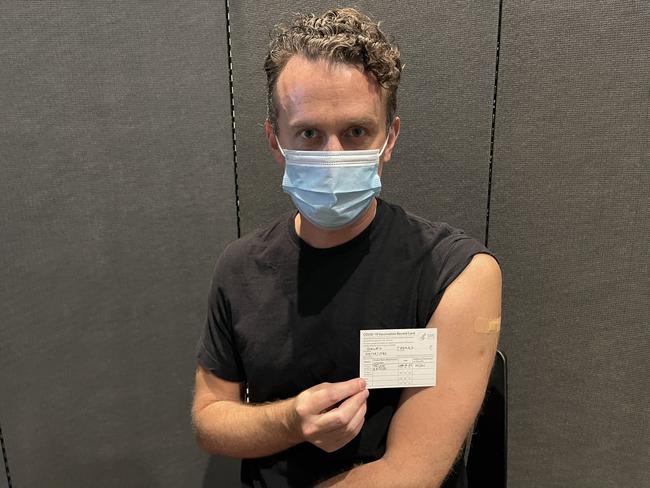
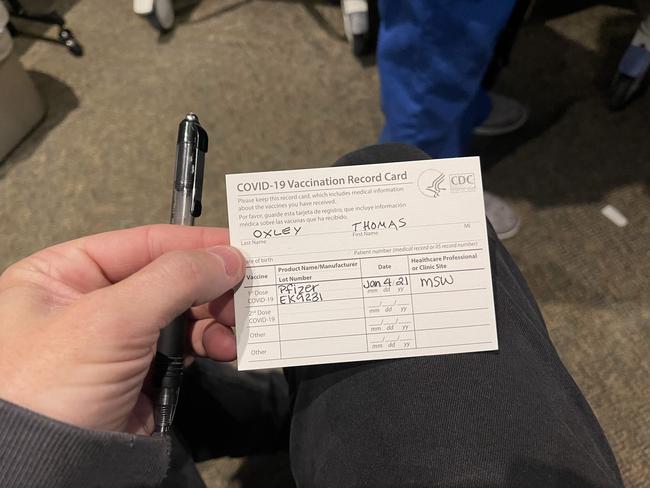
Dr Tom Oxley, a former Melbourne neurosurgeon who has been working on the COVID front lines at Mount Sinai Hospital in New York for the past year, hesitated to take up the offer of the vaccine because he already had antibodies from a bout with the virus last March.
Uncertainty about how long immunity lasts with antibodies, the mutation of the virus and concerns that he might not be able to travel without a vaccine prompted him to take part in the rollout at his hospital.
His initial concerns about the “rush” of “Operation Warpspeed” were overcome when he studied the data and he was given his first Pfizer jab.
“I’m predicting the future is going to be divided, that access to the world is going to be divided in the future to those that have had the vaccine and those that haven’t,” he said.
“I can just see it happening and I wanted to be covered.”
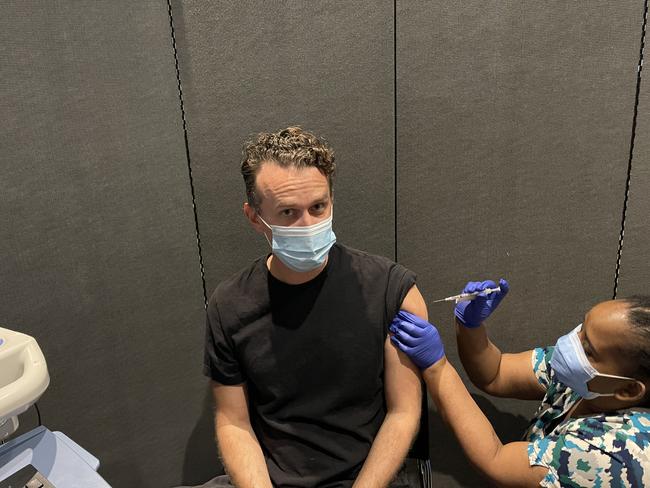
The fear that she may not be able to get home to visit Australia was central to Texas pharmacy technician Carolyn Martinez taking up the first offer of a vaccine.
She was forced to miss her father’s 80th birthday in WA last October because of travel restrictions.
“I was very happy to be vaccinated so that something that like that wouldn’t happen again,” said the 44-year-old mother of four who was raised near Perth.
Catherine Waterman, 29, who works for a New York hospital group, said she had asked her medical colleagues for their opinion on the safety of the vaccine.
“I had no hesitation once I realised that just because the time frame was shortened doesn’t mean that any steps were missed. It was just the red tape that was cut,” said Ms Waterman, who is from Canberra.
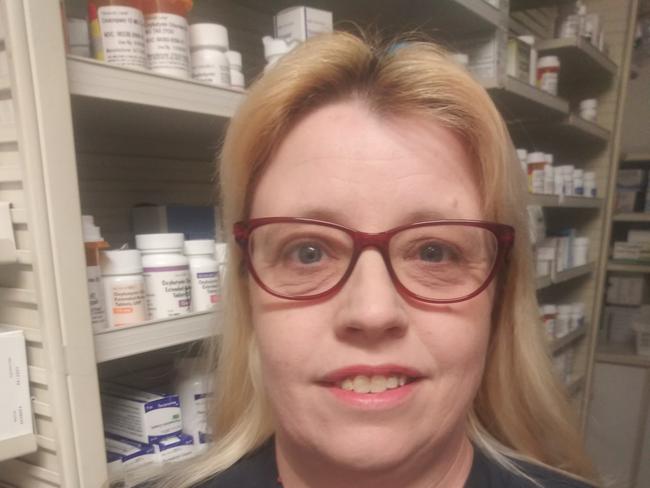
She said that March was too long to wait for Australia to roll out vaccines.
“From an economic standpoint and public health standpoint, it’s better for the long term because there clearly is now a remedy for it, and in order to get herd immunity, people need to start getting the vaccinations.
“And Australia just can’t keep closing the borders every time there’s an outbreak, it’s just not sustainable.”
The US rollout has been slower than anticipated with about a quarter of the vaccinations administered than had been predicted by federal authorities by the end of 2020.
Priority in most states is being given to frontline health workers and nursing home residents but the states have control over distribution and in some cases elderly people have been forced to line up overnight in cold and rain to try to get a dose of the vaccines.
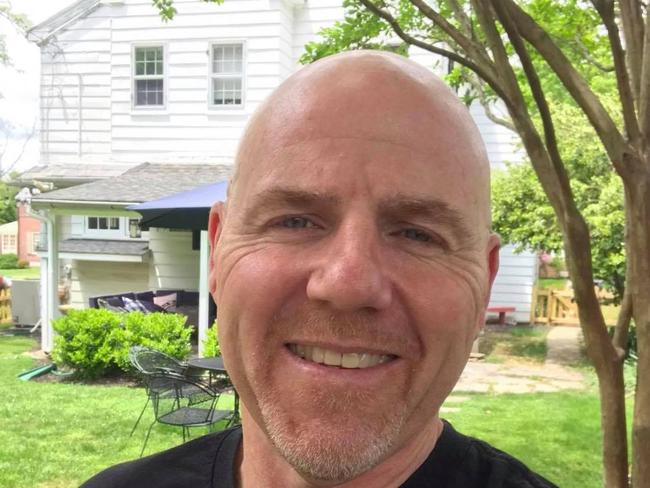
Former Sydney IT worker Jason Gwyther, 56, took advantage of a pre-surgery break in his chemotherapy treatment to get his first shot.
“I work in a nursing home so we have to be really careful,” he said, adding that he “felt like I’d been punched in the arm” for two days after his first shot.
“I had no hesitancy, I trust the experts that they know what they are on about.”
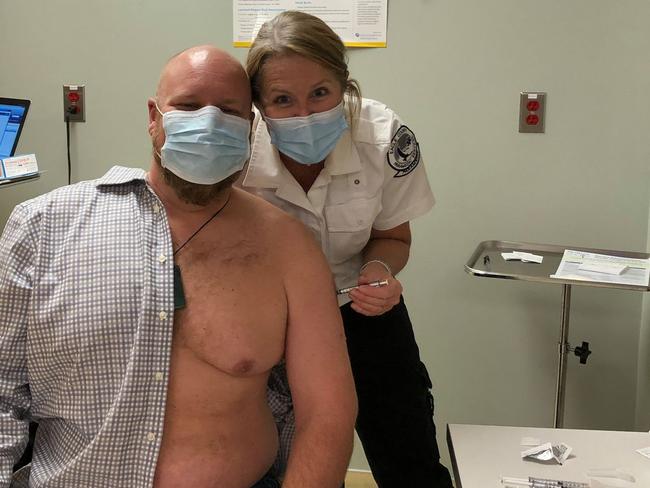
Aspen based paramedic Karen Conrad was tasked with giving her firefighter husband Jason his shot when the pair were among 643 Colorado locals treated with the Moderna vaccine on December 23.
“It felt great to be part of that day,” said Mrs Conrad, 46.
She said she felt a sense of “personal relief” to know she was now immune but that she took part in the vaccination for the safety of others.
“I feel like if it’s offered to us then we all have to take it, we have to do it in order to get the virus out of the community,” she said.
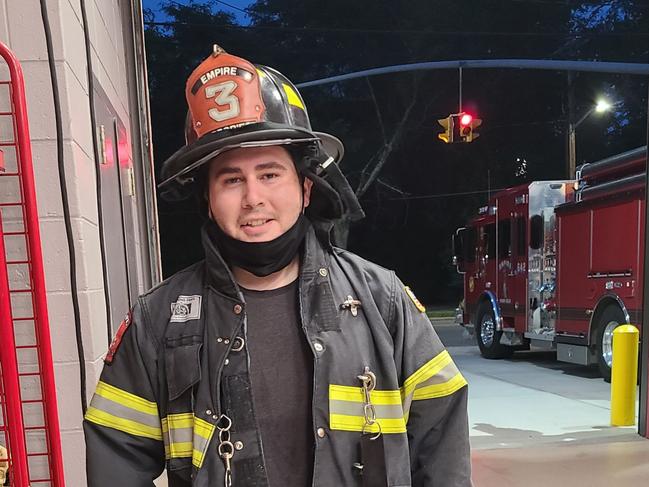
She praised Australia’s approach to the pandemic, saying she felt “so thankful they are being so cautious”, given that her father on the Gold Coast was in his 80s and “living something of a normal life in safety”.
Long Island volunteer fireman Stefan Oberman said he was “grateful” to have had his first vaccine over the weekend and that he had a slightly sore arm at the injection site.
“It was an easy process, I had an email from the firehouse and just followed their directions,” he said.
More Coverage
Originally published as ‘So thankful’: Aussies who have already received COVID-19 jabs




